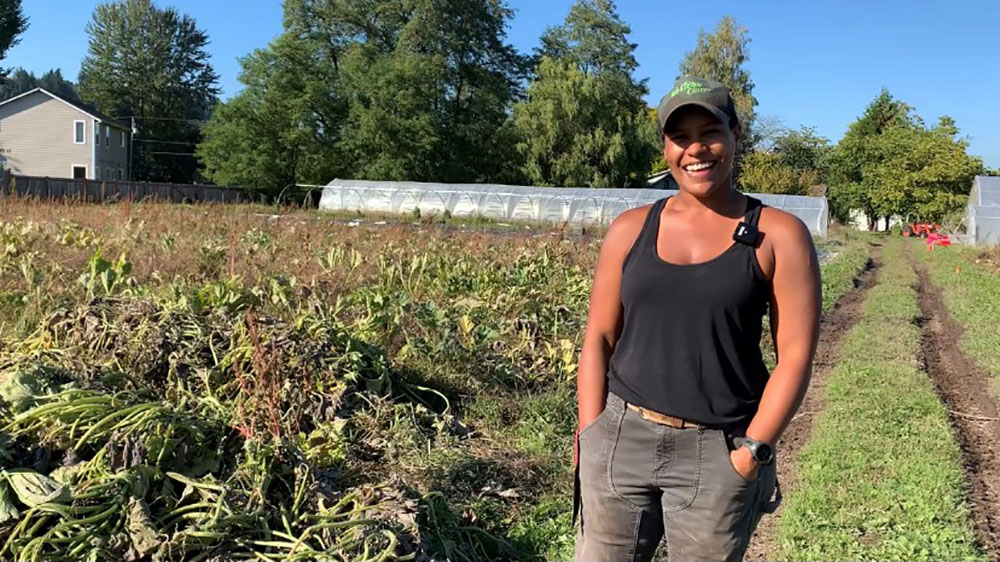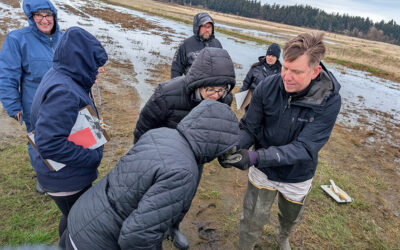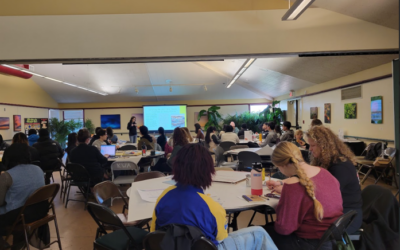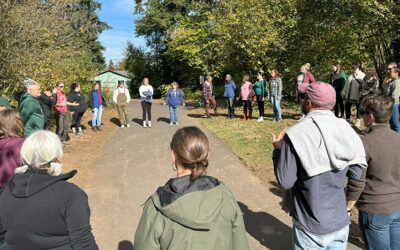PEI FieldSTEM Coordinator interviewed Tara Clark for the workshop’s virtual field trip. Mother Earth Farm manager, Tara Clark, shared that she left a film career in Los Angeles to work the land on behalf of her community.
Pacific Education Institute’s (PEI) first ever Regenerative Agriculture Western Washington Solutions Oriented Learning Storyline (SOLS) workshop took place on December 1 and 14, 2021. While PEI had previously completed a regenerative agriculture storyline for Eastern Washington, this content, specifically geared towards Western Washington’s unique farming context, was written over the last year by local teachers and PEI staff. During the fall, PEI, with the help of the Pierce Conservation District, developed an accompanying virtual field trip, allowing teachers to visit three local farms, learn about regenerative agriculture practices on the west side of the mountains, and hear from farmers about this rewarding and vital career. This work was funded by a generous grant from the Puyallup Watershed Initiative.
PEI FieldSTEM Coordinators, Cindy Haverkamp and Tressa Arbow, led 12 educators from three school districts through the training, which included two 2-hour Zoom sessions and one 2-hour asynchronous session. In both Zoom sessions, and despite the wintry weather, teachers worked outside to complete investigations from the storyline. PEI values getting students outside and sending educators outside gives them a chance to practice the skills their students will need to do these activities. Teachers appreciated this opportunity. One stated, “Fantastic work keeping it engaging in the virtual setting. I appreciated being able to ’get outdoors.’”
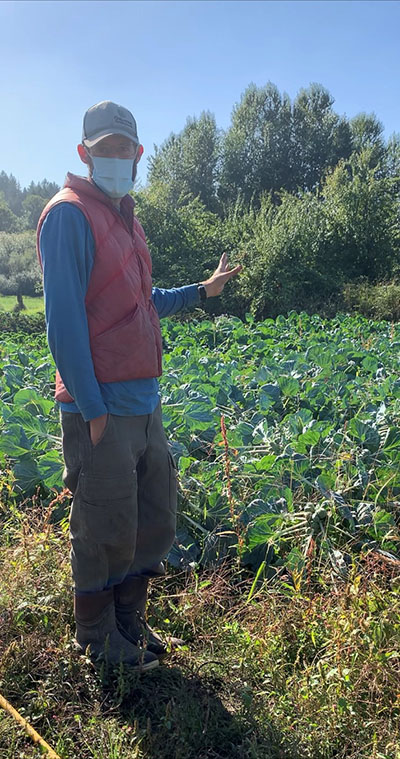
Speaking with farmers was a highlight of the workshop for educators. Pictured here: Rawley Johnson of Early Bird Farms.
Another important part of both sessions was a focus on Indigenous ways of knowing, which is one of the six guiding principles around which the SOLS are designed. Workshop facilitators delivered land acknowledgements from the East Sound region, modeling what a land acknowledgement might look like in the educator’s classroom. They also viewed a place-based video explaining the value of Indigenous knowledge in the scientific disciplines. After attending the workshop, 92% of the participants felt empowered by these activities to make their instructional practices more inclusive for diverse learners, specifically for Native American students.
The most popular activity in this workshop occurred on December 14 when educators listened to local farmers, Rawley Johnson and John Inch, give a presentation on the importance of regenerative agriculture in mitigating the effects of climate change, as well as the benefits and challenges of this practice. The presentation was followed by question-and-answer time. One teacher shared, “I could have talked with those farmers for a whole day!”
Six STEM Clock Hours were provided for completion of this work. One teacher shared, “PEI units are so useful, timely, and connected to the real world,” and that they are excited to integrate this unit with their work on food waste and school garden programs.

